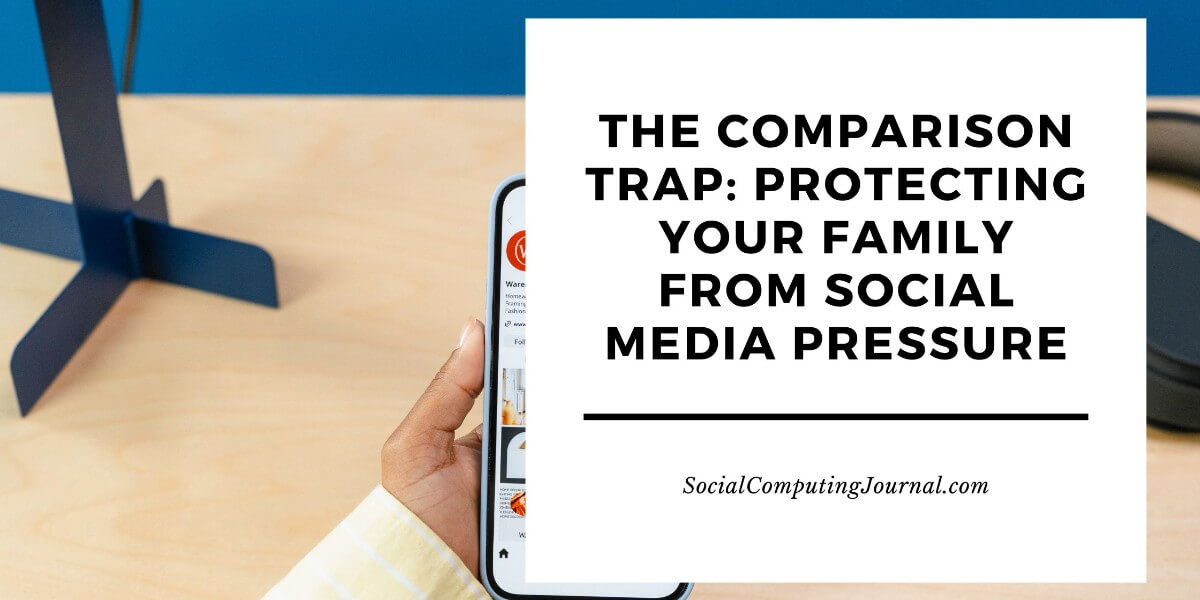We’ve all been there – scrolling through Instagram at 11 pm, watching someone’s seemingly perfect holiday unfold in real-time while you’re in your pajamas, eating yesterday’s leftover pasta. Social media has a sneaky way of making us feel like we’re not quite measuring up, and unfortunately, this pressure is affecting adults and children alike.
Contents
When Picture-Perfect Becomes the Problem
Social media platforms are designed to showcase highlights, not reality. That gorgeous family photo at the beach? It probably took 47 attempts, three meltdowns, and a small fortune in ice cream bribes. But we don’t see the chaos behind the camera – we see the result and wonder why our own lives feel so wonderfully messy in comparison.
For families, this constant stream of curated content can create unrealistic expectations about everything from birthday parties to school achievements. This pressure can feel particularly intense for parents who might worry about providing experiences that match what they see online, or for children fostered with Foster Care Associates in London, who may feel their family situation doesn’t look like the ‘normal’ families they see on social media.
The Ripple Effect on Our Children
Children are particularly vulnerable to social media pressure because they’re still developing their sense of self-worth. When they see classmates posting about expensive holidays, designer clothes, or academic achievements, it can trigger feelings of inadequacy that they’re not equipped to process.
Young people often don’t realise that what they’re seeing online isn’t the full story. They might compare their genuine struggles with someone else’s highlight reel, leading to anxiety, low self-esteem, and a distorted view of what “normal” actually looks like.
Creating Digital Boundaries That Work
The good news is that you don’t need to go completely off-grid to protect your family’s well-being. Start by having honest conversations about what social media is – a carefully edited version of reality, not a documentary. Help your children understand that everyone curates their online presence to some degree.
Consider implementing “phone-free zones” during family time, particularly around meals and before bedtime. This creates space for genuine connection without the constant ping of notifications drawing attention elsewhere.
Building Real-World Confidence
Focus on celebrating your family’s unique achievements and experiences, however small they might seem. Did your teenager finally master that tricky maths concept? That’s worth celebrating. Did your eight-year-old show kindness to an upset friend? Brilliant.
Encourage activities that build confidence away from screens – whether that’s learning to cook together, taking up a sport, or volunteering in your community. These experiences create genuine self-worth that isn’t dependent on likes or comments.
Leading by Example
Perhaps most importantly, examine your relationship with social media. Children are remarkably good at picking up on our behaviours, so if you’re constantly checking your phone or expressing anxiety about online content, they’ll likely mirror these patterns.
Remember that it’s perfectly fine to curate your own social media feeds. Unfollow accounts that consistently make you feel inadequate and seek out content that inspires rather than intimidates.
Social media isn’t inherently evil, but it requires mindful navigation. By acknowledging the comparison trap exists and taking active steps to counter it, we can help our families enjoy the benefits of digital connection whilst maintaining a healthy relationship with reality.






